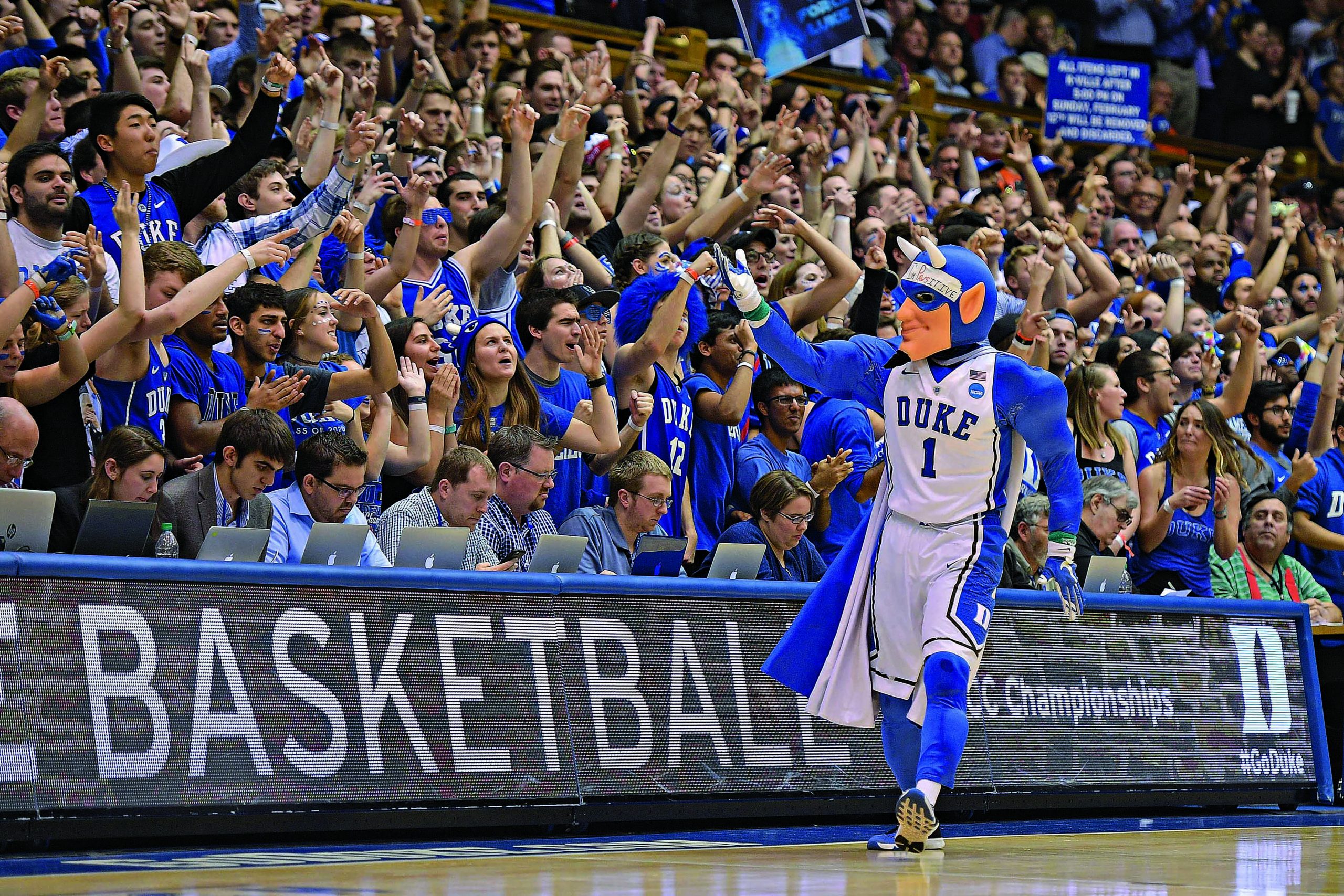THIS EMAIL IS CONFIDENTIAL. PLEASE DO NOT SHARE ITS CONTENTS WITH ANYONE.
So it began. Was the Duke student who received this email—from a university email address—in trouble? Not exactly.
You have been identified as a potential candidate for the position of Blue Devil Mascot. If this is something you would be interested in pursuing, simply reply “yes” by noon (12:00 p.m.) on Thursday and you will receive additional information and instructions. If, on the other hand, becoming the ultimate Cameron Crazy, the face of Duke University and Duke Athletics, and having either floor or front-row seats to all basketball games does not appeal to you, simply disregard this email and discuss it with nobody. Again, this email is confidential.
The Duke Men’s Basketball program is known most of all for the legendary coaching run that Mike Krzyzewski just completed, and after that for the scores of great players who have played there and the arena in which they’ve done it.
But please don’t sleep on the Blue Devil’s role in making the program so iconic.
This is actually the perfect time to take stock of the Blue Devil’s history, given that this year is the 100th anniversary of his being around, a fact that Lisa Weistart, who was the Blue Devil from ’90-92 and now works at Duke Alumni Engagement and Development, figured out while researching the mascot’s history a few years back.
To celebrate the occasion, there was a Blue Devil reunion at this fall’s Homecoming Weekend, and 16 of the former mascots showed up to celebrate.
“It was awesome,” gushes Stratton Thomas, who graduated last spring after serving as a Blue Devil for all four of his years on campus. “It was so cool to meet mascots all the way from the ’70s. They really shaped the program and the history and the mascot that I was. It was really cool to see how near and dear being a mascot was, even after 30, 50 years, however long it was.”
The name “The Blue Devils” was chosen by the staff of the student paper after naming contests focused on nicknames that leaned into Duke’s blue and white color scheme. Beyond the obvious fit with colors, Blue Devils served as an ode to the Chasseurs Alpins, also known as “les diables bleus” (“The Blue Devils”), a French military unit in World War I that wore blue jackets and had impressed many Duke students and alumni returning home from the Western Front.
Well after the university’s sports teams started playing under the Blue Devils nickname, a uniformed mascot was created to cheer on the team and get crowds fired up. Previous versions looked relatively mischievous, but the current look (which has been around since ’08) is more playful, as befits a character who brings joy to all who encounter it. Except opposing fans, of course.
“We always love having the Blue Devil around,” says former player and current assistant coach Amile Jefferson. “His antics and swagger are on another level. We’ve been fortunate to have so many students over the years bring the passion, energy and creativity required to make sure the Blue Devil is locked in for us. Cameron isn’t Cameron without the Blue Devil roaming the sidelines in there.”
These days, the Blue Devil can be found at all men’s and women’s basketball home games, numerous neutral-site hoop games, including Final Fours, all football games (home and away) and assorted other sporting events. The costumes are slightly different if a Blue Devil is attending a basketball or football game. Even with the remarkable success Duke Athletics has had as a whole, the athletic program is certainly best known because of its men’s basketball team, and that’s where the Blue Devil really shows off his skills.
“My freshman year, I was friends with a cheerleader who noticed I was at every game and a bit more enthusiastic than most fans. It was my sophomore year of 2008-09 when I got the mysterious email,” recalls Pat Rutter. (Don’t worry, Pat, we won’t tell anyone where we got it.) “I started being the Blue Devil that winter and did it through my senior year. I took over the Blue Devil email address, started the Twitter account.”
The email address is important because that’s where the Devil is contacted about appearances, including attending weddings. While all the work at official sporting events is volunteer, those who work outside events as the Devil can make a few bucks, which seems more than fair.
“It was pretty good money for a college student,” confirms Rutter.
But the greatest pay the job offered was the experiences, like traveling to Final Fours and surfing the crowd at Cameron.
“I have no bad memories at all,” says Thomas, the recently graduated Blue Devil. “I’ve got two favorite memories. The first is my sophomore year at the [2K] Empire Classic in New York. It was my dad’s birthday [for] one of those games. I did my headband to say, ‘Happy Birthday Dad’ and one of the announcers was like, I didn’t know the Blue Devil had a father!?! The other memory is last year’s Final Four. Even though it didn’t go the way we hoped, getting to travel to the Final Four in New Orleans and be on the court with 75,000 people screaming down at you while you act like a fool was amazing.”
Last year’s Final Four was extra special, of course, because it represented the end of Coach K’s illustrious career and the rare chance to play archrival North Carolina on the game’s biggest stage. Playing such a familiar rival also meant the mascots could put on a little extra show.
“The Rameses at the Final Four was one of my good buddies,” says Thomas of the UNC mascot. “We’d each been mascotting since our freshman year so we played with each other really well. When it’s a rival school, the interactions are definitely heightened as we can get in character more, give the people a bit of a show.”
Bringing up Rameses raises the question of where the Blue Devil ranks among the iconic collegiate mascots. Some Googling shows that the general lists of such topics tend to lean heavy on football schools, and while Duke has a nice history on the gridiron, it hasn’t been terribly relevant for the last generation. But when you look for rankings of best college basketball mascots, your boy is in the building.
“I frankly think we rank among the top,” Thomas says. “Of course I’m biased, but I do know there was an article a couple of years ago that ranked the ‘sexiest mascots’ and the Blue Devil was No. 1. With our rich history, I think we’ve got one of the best in the country.” Shout out to college sports for even generating such conversations, huh?
One of the great ironies of the whole thing, of course, is that those who work as such an iconic figure, getting wedding invites and all sorts of television time, can’t actually be famous themselves. For one thing, it’s the character that people love. For another, in a given year, there are usually two to five students sharing two or three physical costumes, so it’s not like there’s one Blue Devil anyway.
“We’re a member of the cheerleader squad, but we want to keep it private,” says Rutter. “I think I did a pretty good job staying unknown, but people wanted to know why I had a credential around my neck. If I did the first half of a game and then showed up in the second half, they’d figure it out.”
Rutter also remembers back during his Devil days when one particular Duke player didn’t quite get the message. “Kyrie [Irving] kept forgetting that it’s supposed to be anonymous,” he says. “He’d yell at me through a crowd, Hey, Blue Devil! He was always so friendly about it.”
In the land of mascots meet social media, Thomas explained to the Duke Chronicle, when the time comes to reveal yourself, the likes follow. “It’s something that every mascot at every school gets the opportunity to do,” he said last May. “[The reveal post] has become my most popular Instagram post, so no complaints there, but also all the comments from both friends and acquaintances that I’ve known since my freshman year are overwhelming and amazing.”
There may be nothing in college basketball like The Brotherhood, the collection of ex-players who stay close to the program and cheer on their fellow brothers and current players with equal enthusiasm. But if you take a minute to think about all of the Blue Devil mascots over the years, it’s clear that they have their own brotherhood, too.
Photos via Getty Images.
The post The True Story Behind the Iconic Duke Blue Devil Mascot appeared first on SLAM.

